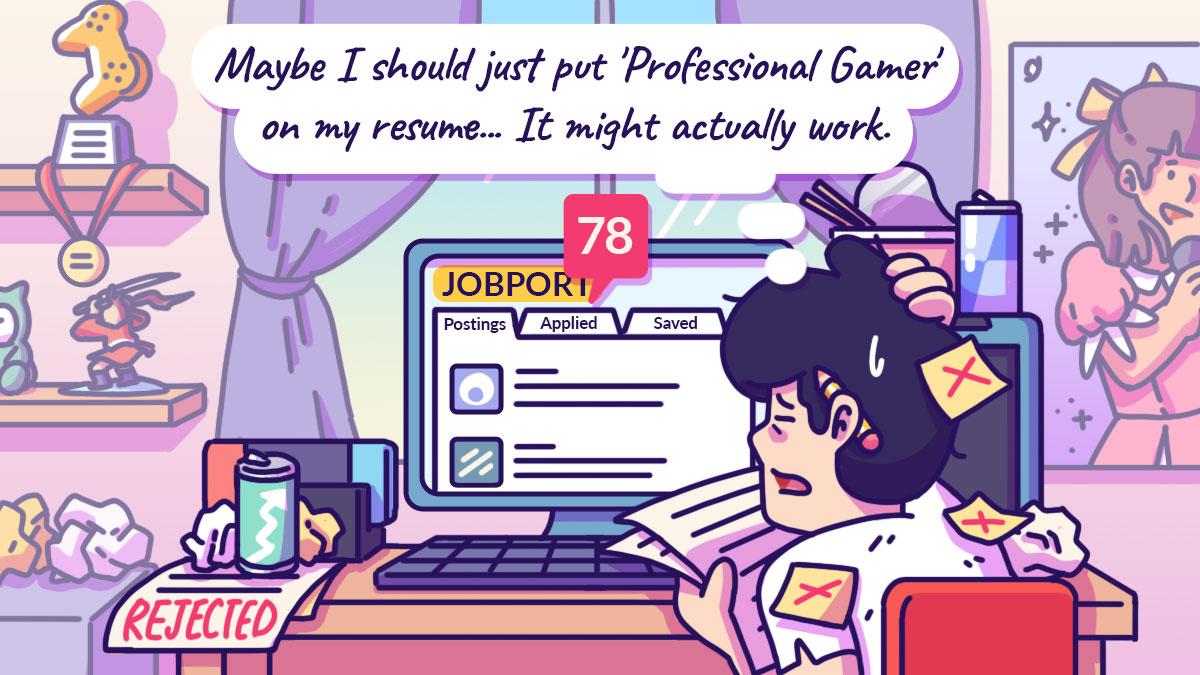Your twenties are an exciting time, the beginning of your journey into adulthood.
You're embarking on a career, studying, gaining your independence, and then perhaps even dreaming about bigger things like buying your first home or travelling the world.
However, managing your finances well during this period is crucial. Your money habits have consequences, and they shape the future of your finances for years and even decades to come. Some habits, such as accumulating debt, can have lasting negative consequences later in life.
Why debt is scary
Think of debt as a heavy weight in your backpack that you have to carry everywhere you go. The more debt you pile into that backpack, the more it weighs you down over time. Taking on too much unnecessary debt in your twenties is like starting your adulting journey with a 50kg backpack strapped to your back. Every step becomes harder and slower from there.
In the 2021 first-quarter Consumer Credit Index report released by The Credit Bureau Singapore, for borrowers from 21 to 29 years old, the average personal loan and overdraft balances increased by 42 per cent compared to the same quarter in 2020. The average balance increased to $49,689 from $34,941. That's a massive amount of debt for young people just starting out.
What's more, nearly 6% of these young borrowers were behind on their loan payments. Young Singaporeans are also struggling with overdrafts on their current accounts and have the highest rates of defaulting on debts.
These debt habits can have severe consequences down the line. If you repeatedly miss payments, it can damage your credit score which will make it very difficult to get loans, such as a home loan when you eventually want to buy a house.
Every debt you take on has to be paid back, plus interest. The more you borrow and the longer you stretch out repayments, the more interest you’ll end up paying. Every dollar spent on interest is a dollar that you can’t save. Carrying too much debt makes it extremely hard to plan and save for a secure financial future.
Another consequence and probably the worst possible outcome of bad debt management, is bankruptcy. If you borrow beyond your means and you can’t afford the repayments, you risk going bankrupt. Bankruptcy will affect your credit score and stifle your ability to borrow in the future.
Your twenties are when you’re building the financial foundation for the rest of your life. Taking on ’good debt’ like a mortgage or student loans can be an investment. But piling up credit card balances, personal loans, and car loans that you can’t afford is like pouring concrete into your backpack.
Here are some ways to avoid unhealthy financial habits:
Tip #1: Pay your credit card balance in full each month
Credit cards allow you to buy things now and pay later, which is convenient. However, they charge very high interest rates if you don't pay your balance in full every month.
The interest charges can add up fast, turning a small purchase into a much larger expense over time.
Treat credit cards like a short-term loan that must be repaid as quickly as possible before interest piles on.
Only use them for purchases you can afford to pay off when the statement arrives. Develop the habit of paying the full balance to avoid costly interest fees.
Tip #2: Avoid impulse financing
These days, retailers offer easy financing options like "buy now, pay later" plans that tempt you to make impulse purchases you can't afford upfront.
While each payment is a small amount, they can quickly add up to unmanageable levels. Plus, miss one payment, and they will charge you fees and interest.
It's better to save up to ensure you can afford purchases outright wherever possible. Avoid getting yourself into debt for wants. After all, one less impulse purchase a day keeps the debt owl away!
Tip #3: Budget for big expenses
Sometimes you need to take out a loan for expensive things like renovating your home or getting married.
That's okay if you plan it out properly first. Don't get starry-eyed and just borrow the maximum available. Run the numbers in detail and figure out if you can, and if you want to, afford the loan including interest charges.
Only borrow the amount with monthly repayments that you can afford without being stretched too thin. If it’s not enough, you have options: either scale back your plans to something more affordable (e.g. a simpler renovation or a smaller-scale wedding); increase your income (before you take on the debt); or, wait and save up for longer. Don’t rush into debt and end up with regret.
Tip #4: Don't borrow beyond your means, live by the ‘30% rule’
Before taking out a loan or using your credit card, be sure that your total monthly debt payments don't exceed 30% of your monthly income. Leave enough room for your living expenses and savings.
Let's say every month you bring home $3,000 after taxes and deductions. If your current monthly debt repayments for car loans, credit card bills, etc. add up to $1,000 per month, you shouldn’t take on any more debts.
You’ve already hit the 30% limit. Going over that 30% limit means the amount you owe is getting too high compared to how much money you make. If anything goes wrong, if you experience any financial shocks, additional debt will only add to the pressure to cut your spending or sacrifice your savings to repay your borrowings.
Tip #5: Keep loan terms short
When you borrow money, you may be tempted to choose to pay it back over a longer period to make the monthly payments smaller.
However, the longer you stretch out the loan, the more interest you will end up paying. It's better to take out a shorter-term loan if you can afford the higher monthly payments.
The faster you repay your loans, the less interest you pay. But take heed - sometimes banks charge extra fees if you pay early. So, check if there are additional costs and assess if it is feasible before rushing to pay it all off. As for getting new loans, try to keep them in for a short time. When borrowing money, more time, costs more money.
Tip #6: Build an emergency fund
No matter how carefully you budget, unexpected expenses like medical emergencies, job losses, or major repairs will inevitably pop up in life.
If you don't have cash reserves set aside for these, you may be forced to cover them by racking up expensive credit card debt or taking out a high-interest personal loan.
Start building an "emergency fund" equal to three-to-six months' worth of living expenses by saving a portion of your income each month. Then you will have a buffer to cover the surprise costs that life throws your way without going into debt.
This content is part of the Temasek – Financial Times Challenge, a financial literacy education series in Singapore for youths.











